
Ciara announces she’s pregnant with third child with husband Russell Wilson
Ciara has revealed that she and her husband, Russell Wilson, are expecting their third baby. The singer, 37, shared a black-and-white video to Instagram on 8 August to announce her pregnancy. In the footage, Ciara could be seen posing and dancing next to a pool, while showcasing her baby bump. The video is also set to her and Chris Brown’s new song, “How We Roll.” She went on to confirm that she’s expecting in the caption of the post, as she included some of the lyrics from her latest tune. “You look at me like that again, we make another kid…You my heart I’m your rib,” she wrote. In the comments of the post, many famous faces have gone on to celebrate the baby news, with singer Chloe Bailey writing: “YEEEESSSSS,” along with three heart eyes emojis. “OMGGG CONGRATULATIONS @ciara @dangerusswilson,” singer Normani added. “I am screaming for y’all.” “Congratulations Mama!!! Sending [love] to you and @dangerusswilson!” Lupita Nyong’o wrote. Many fans also took to the comments to praise the video, with one writing: “Now that’s how you announce a pregnancy…Omg!!!!” Wilson also announced the news on his own Instagram, where he shared the video of his wife and noted that he’s the one who filmed it. In the caption, he quipped: “That’s just ‘How We Roll.’” The “Level Up” singer and her husband are already the parents of two: a six-year-old daughter, Sienna, and a three-year-old son, Win. Ciara also shares a nine-year-old son, Future, with her ex, Future. The pair’s announcement also comes a year after Wilson opened up about wanting to expand his family. While Ciara was guest hosting The Ellen DeGenres Show, she brought her husband onto the programme, during which he asked her: “Can we have more babies?... Just give me one more at least.” After the singer responded by bursting into laughter, she told her partner – who she’s been married to since 2016 – she agreed to have more children. “We definitely can,” she said. “We have a little time before we get there…But I’m down to do it again with you.” Back in 2020, the NFL star made a different joke about having another child. In a video posted to Ciara’s Instagram, to promote her fragrance line, he told her: “You smell like you about to get pregnant again.” Meanwhile, the “Body Party” singer has continued to speak candidly about motherhood. During an interview with People earlier this month, she confessed that while she’s “getting better” at managing the chaos of back-to-school season, she still has a busy schedule, as a parent of three. “There are three kids, three of these precious, beautiful, turned-up-crazy, fun, amazing human beings that come with so much. It’s like, ‘Oh my Lordy,’ but you also find a way to make it work,” she said. “That’s the beauty of it all, it’s organised chaos.” She continued: “That’s how life is in general for us, so that’s nothing new, but during back to school, you’re really carefully running through lists and crossing your Ts and dotting your Is, because you want your kids to be set up for success and go in prepared.” Read More Why TikTok is going wild for lip oil Get ready for a SpongeBob and slime Super Bowl. CBS and Nickelodeon team up for NFL's biggest game Future disses ex-fiancée Ciara’s husband Russell Wilson in new track Francia Raisa says she has polycystic ovary syndrome: ‘Learning to live with it’ Raven-Symoné details cosmetic surgeries she had before she turned 18 What is ALS and what are the causes?
2023-08-09 02:55

MLB Announcers Blast Orioles For Kevin Brown Suspension
Announcers from around MLB blasted the Orioles for suspending Kevin Brown.
2023-08-08 10:53
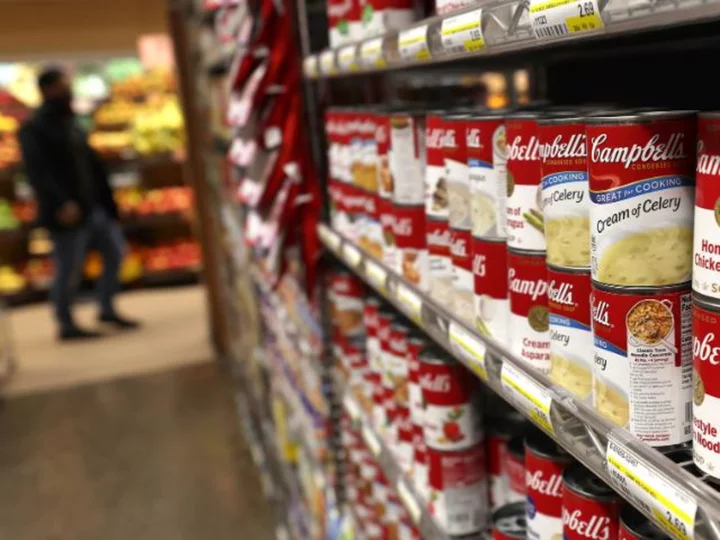
Campbell Soup Company buys Sovos Brands, maker of Rao's for $2.7 billion
Iconic canned soup company Campbell is expanding its reach in the Italian food market.
2023-08-08 05:17
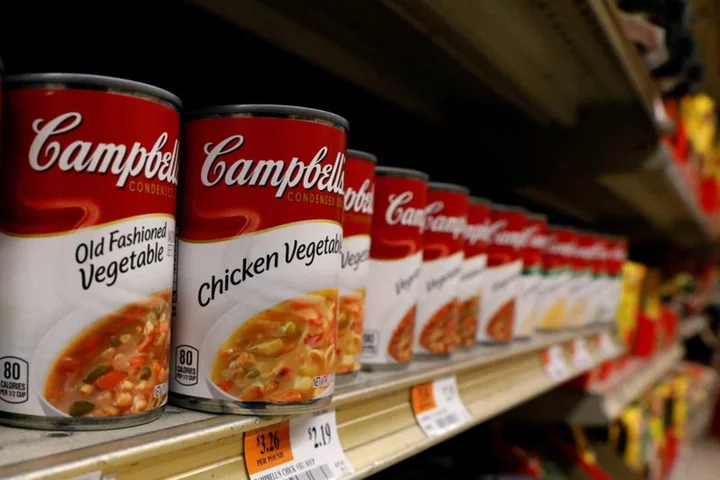
Campbell to buy Rao's premium sauces maker Sovos for $2.33 billion
(Reuters) -U.S. packaged food maker Campbell Soup will buy Michael Angelo's and Rao's owner Sovos Brands for $2.33 billion in
2023-08-07 20:15
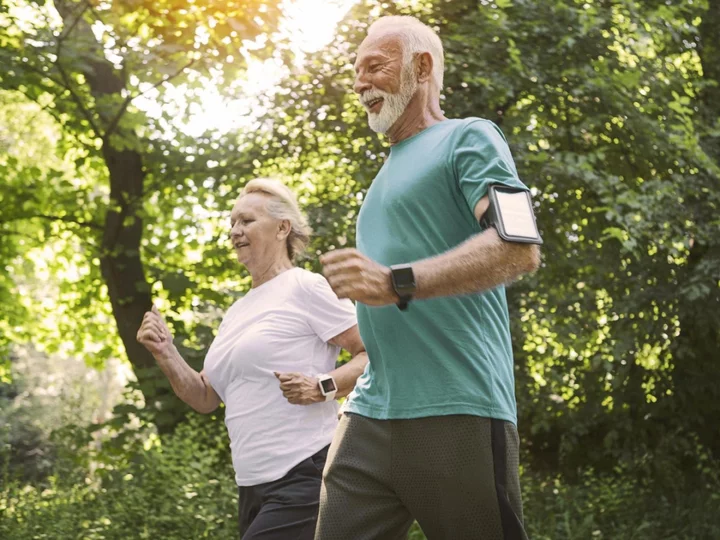
Health expert Dr Michael Mosley shares two tips for avoiding osteoporosis
Health “guru” Dr Michael Mosley has offered his advice to those seeking to reduce their risk of developing osteoporosis, a condition characterised by weak or brittle bones. The medical expert and former doctor is known for his regular appearances on The One Show, as well as his TV programmes on health and medicine. Writing in his column for MailOnline, the creator of the 5:2 and Fast800 diets said he had found his bones were not as strong as they could be while filming a series about healthy ageing in 2022. “Like many Britons, my bones are weaker than they should be,” he wrote. “While filming a series about healthy ageing last year, I had a DXA scan, which uses low-dose X-rays to see how dense (or strong) your bones are. “Although I have a sturdy spine, my hip bones aren’t in great shape, though I don’t have osteoporosis.” Dr Mosley explained that the key to avoiding osteoporis involves getting a healthy intake of both calcium and Vitamin D, as well as a short but effective burst of exercise each day. “As well as obvious good calcium sources such as dairy and leafy green veg, you may want to top up on prunes,” he suggetsed. “A study last October in the American Journal of Clinical Nutrition, involing 235 older women, concluded eating five to six prunes a day improved bone density. The theory is that anti-inflammatory compounds in prunes may slow bone breakdown.” He also suggested that daily exercise could also help, citing a study that showed two minutes of hopping each day can improve hip bone strength. In 2020, Dr Mosley claimed that men were “more deluded” than women when it came to their own weight and fitness, while fronting a Channel 4 series to help people who had gained weight during lockdown. He told the Press Association: “An awful lot of people are unaware of how much weight they put on, particularly around the gut.” Research shows that only 10 per cent of people who are obese know they are but that the figure is only 7 per cent for men, Dr Mosley said, while “women are more aware of it”. He also denied that the show, which offers practical advice to overhaul viewers’ lifestyles, was about fat shaming: “Body shaming is awful. It is incredibly ineffective. Telling people they’re fat never, ever works,” he said. “None of this is about fat-shaming. It is entirely about helping people who are obese and who want to do something about it. Any diet is only ever going to work if the person wants to do it.” Read More Jamie Foxx and Jennifer Aniston issue statements over ‘antisemitic’ Instagram post Why is every celebrity couple breaking up? Relationship experts think we shouldn’t be so shocked Eye masks, kombucha and ‘the full spectrum of milks’: Gwyneth Paltrow finally gave us a tour of her fridge Health expert Dr Michael Mosley shares two tips for avoiding osteoporosis Will Smith says Willow ‘mutiny’ changed his view on family success Who was controversial vegan raw food influencer Zhanna D’Art:
2023-08-07 14:29

Will Smith says daughter Willow’s ‘mutiny’ changed his view on success
Will Smith says a “mutiny” by his daughter, Willow Smith, is what first caused him to change his perspective of success. The Hollywood actor has been stepping back into the spotlight following his infamous outburst at the 2022 Oscars, where he slapped Chris Rock on stage after the comedian made a joke about his wife, Jada Pinkett Smith. In an interview with fellow actor and comedian Kevin Hart, on his Peacock show Hart to Hart, Smith spoke about the moment his family rose to fame in 2010. While Smith had enjoyed his own success from 1999 thanks to NBC’s sitcom The Fresh Prince of Bel Air, Willow and his son Jada achieved their own fame in the early Noughties. Musician Willow, 22, released her debut single “Whip My Hair” in 2010, breaking into the UK and US charts when she was just nine years old. Meanwhile Jaden, a rapper and actor, starred opposite Jackie Chan and Taraji P Henson in The Karate Kid that same year, when he was 11. “2010 was like the greatest year as an artist, as a parent,” Smith told Hart, Metro reports. “Karate Kid came out in June and ‘Whip My Hair’ came out in October. I’m building this dream of a family I’ve had in my mind. I’m going to do it better than my father did it. We’ve talked about it, my father was abusive.” Smith seemed to imply that he was too hard on his family while trying to achieve the vision he had of a successful family. “‘No one wanted to be in a platoon,” he said. “Willow was the first one to begin the mutiny and it was my first realisation that success and money don’t mean happiness. “Up until that point, I really believed that you could succeed your way – to a house and a family – and you could win your way to happiness.” In a 2022 interview with The Independent, Willow Smith revealed that her parents struggled to understand her while she was growing up, due to their different upbringings. Meanwhile Jaden, 25, asked to become emancipated – where a child is removed from the control of their parents or legal guardians – from his parents when he was a minor, aged 15. His request came after he starred opposite his father in the box-office disaster, After Earth, which was also panned by critics. In his 2021 memoir, Smith recalled the moment his “heart shattered” when Jaden asked to become emancipated. “And what was worse was that Jaden took the hit,” the Independence Day star wrote, adding: “Jaden had faithfully done everything that I’d instructed him to do, and I had coached him into the worst public mauling he’d ever experienced.” Jaden ultimately decided against pursuing emancipation, but moved out of his family home that year. Will Smith is currently shooting a Bad Boys sequel with Martin Lawrence, with whom he has co-starred in three previous Bad Boys films, including the 1999 original. Read More Netflix leaves fans distraught as it announces end of beloved series One Tree Hill star Sophia Bush changes name after ‘filing for divorce’ from husband Grant Hughes Zhanna D’Art: Who was the controversial vegan raw food influencer who died from ‘starvation’? Who was controversial vegan raw food influencer Zhanna D’Art: Eva Mendes reveals she doesn’t let her daughters use the internet What is Stiff Person Syndrome?
2023-08-05 22:58
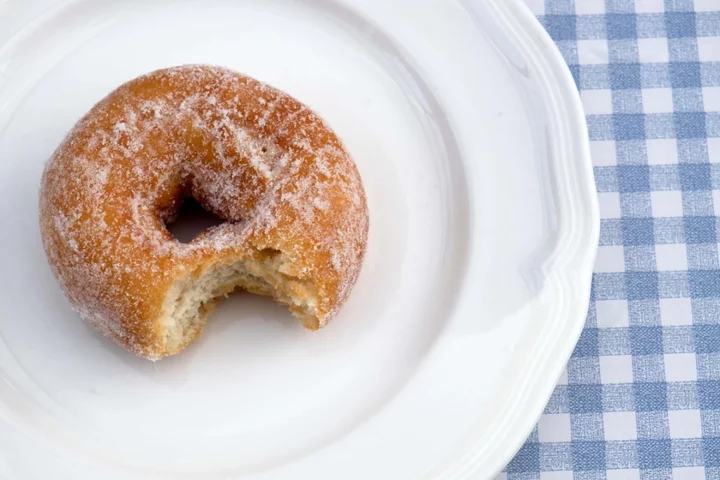
Consuming foods with added sugars may increase risk of kidney stones – study
Consuming foods with added sugars – such as soft drinks, ice-cream and cakes – may increase the risk of developing kidney stones, according to scientists. Researchers have found that those in the US with the highest intake of added sugars had nearly 40% greater odds of developing kidney stones. They said this association was more prevalent among Asians as well as Native Americans. But the researchers pointed out that their study, published in the journal Frontiers, does not show how exactly added sugars increases the risk of kidney stones. Lead author Dr Shan Yin, a researcher at the Affiliated Hospital of North Sichuan Medical College, Nanchong, China, said: “Ours is the first study to report an association between added sugar consumption and kidney stones. “It suggests that limiting added sugar intake may help to prevent the formation of kidney stones.” One in 11 people will get stone symptoms during their lifetime, according to The British Association of Urological Surgeons. Ours is the first study to report an association between added sugar consumption and kidney stones. Dr Shan Yin Known risk factors include obesity, inflammatory bowel disease, diabetes, and being an adult male. For the study, the Dr Yin and colleagues analysed data from more than 28,000 people who were part of the US National Health and Nutrition Examination Survey (NHANES) survey. Each person’s daily intake of added sugars was estimated from their self reported food and drink consumption. They also received a healthy eating index score (HEI-2015), based on the food they ate, whether it was beneficial foods such as fruits, vegetables, and whole grains, or less healthy options such as refined grains or saturated fat. The researchers adjusted for factors such as gender, age, race or ethnicity, income, body mass index, HEI-2015 score, smoking status, and whether the people taking part in the study had a history of diabetes. The researchers said people who received more than 25% of their total energy from added sugars had a 88% greater odds than those who had less than 5% of their total energy from added sugars. Results also showed people below poverty levels had greater odds of developing kidney stones when exposed to more added sugars than those at or slightly above poverty levels. Dr Yin said: “Further studies are needed to explore the association between added sugar and various diseases or pathological conditions in detail. “For example, what types of kidney stones are most associated with added sugar intake? “How much should we reduce our consumption of added sugars to lower the risk of kidney stone formation? “Nevertheless, our findings already offer valuable insights for decision-makers.” Read More Charity boss speaks out over ‘traumatic’ encounter with royal aide Ukraine war’s heaviest fight rages in east - follow live Why TikTok is going wild for lip oil 5 late summer blooms to plant now Why have the birds disappeared from my garden?
2023-08-04 15:51

Do you need to watch what you eat when you’re breastfeeding?
Most new mothers try to breastfeed their baby at first, unable to ignore the oft-repeated mantra ‘breast is best’. However, despite the vast benefits of breastfeeding that are being highlighted during World Breastfeeding Week (August 1-7), including protecting the baby from infection and disease, and health benefits for the mother, a huge proportion of mothers quickly give up. Figures from the last UK-wide Infant Feeding Survey (albeit from 2010) found that while more than three-quarters of women start breastfeeding when their baby’s born, this drops to 55% doing any breastfeeding at six weeks, while at six months, just 34% do any breastfeeding, and only 1% breastfeed exclusively. There are many reasons for this, but Public Health England research found more than half of mothers were concerned they might need a special diet to breastfeed, and a similar proportion were worried that breastfeeding meant they couldn’t tell if their baby was getting too much or too little milk. But should new mums really be concerned about eating or not eating specific foods if they’re breastfeeding, and can their diet affect how much milk their baby’s getting? The simple answer is no, as long as they’re eating a healthy balanced diet, says the baby charity Tommy’s. Because while the NHS warns pregnant mothers to avoid specific foods like soft blue cheeses, undercooked meat, liver, pâté and game meats, there are no foods breastfeeding mums must not eat, says Tommy’s. “There are a lot of myths out there around breastfeeding which can leave new parents unsure of what to do and where to turn,” says Tommy’s midwife Sophie King. “If you choose to breastfeed or combination feed, there’s no special foods you need to have, but a varied diet can help our bodies make the best quality milk for our babies. This typically includes lots of vegetables, fruits, grains and proteins. It’s also important that you stay well-hydrated with plenty of water. “ In addition, she says it’s recommended that mothers who are exclusively breastfeeding take a daily vitamin D supplement. An occasional alcoholic drink is unlikely to cause any harm if you’re breastfeeding, says King, but she warns: “Try not to have more than one or two units of alcohol once or twice a week. There’s some evidence that regularly drinking more than two units of alcohol a day while breastfeeding may affect your baby’s development.” In addition, caffeine can reach babies through breast milk, and King explains: “Caffeine is a stimulant, so if you have a lot, it may make your baby restless and keep them awake.” Caffeine occurs naturally in lots of foods and drink, including coffee, tea and chocolate, and it’s also added to some soft drinks and energy drinks, as well as some cold and flu remedies. “There’s not enough information to say how much caffeine is too much, and babies respond to caffeine differently,” says King. “But it’s a good idea to reduce how much caffeine you drink, especially when your baby is less than six months old.” But does what a mother eats affect her milk supply? Again, the answer is no, explains Justine Fieth of the breastfeeding support charity La Leche League GB (LLLGB). “There are no particular foods you need to eat to increase breastmilk – milk production is determined by the amount of milk removed from the breast,” she says. Breastmilk is made in the mother’s breasts, directly from her blood, rather than from the food she eats. Fieth says LLLGB recognises the importance of a varied and healthy diet, and stresses that it’s important for mothers to speak to a qualified breastfeeding supporter if they feel they have low milk supply. “Unless there’s a physical or physiological reason for low milk production, a mother who breastfeeds on cue will be able to produce enough milk for her baby, regardless of what she eats,” she explains. “In certain circumstances, medications can be used to increase supply, but diet plays a minor part – though obviously, eating a varied, healthy diet is always a good thing.” For breastfeeding support, contact the National Breastfeeding Helpline on 0300 100 0212. Read More Charity boss speaks out over ‘traumatic’ encounter with royal aide Ukraine war’s heaviest fight rages in east - follow live Sten dos: What you need to know about the quirky wedding trend Why have the birds disappeared from my garden? Psoriasis Awareness Month: Everything you need to know
2023-08-01 17:26
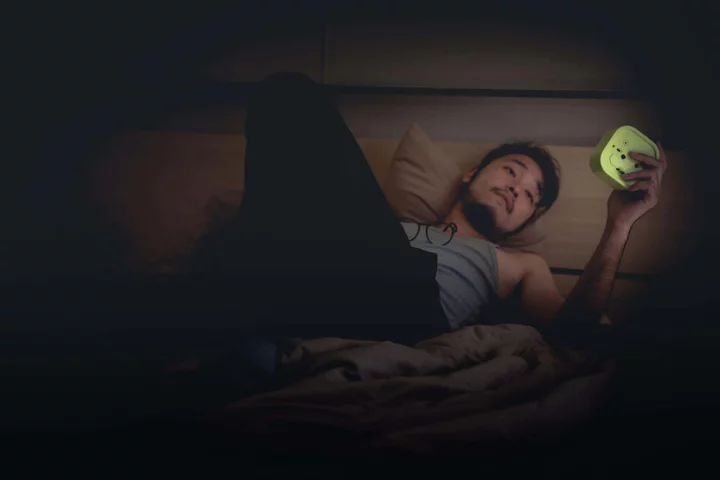
Experts reveal why you keep waking up at 4am, and how you can prevent it
Ever find yourself awake, staring into space at four in the morning? Is it just a bad habit, or is there something more sinister going on? And why does it always seem to happen at 4am? “We start to experience less deep sleep after around four to five hours,” says Lisa Artis, deputy CEO of The Sleep Charity, who have partnered with Simba mattresses. And once we’re in that lighter sleep faze, we wake much more easily. If you generally fall asleep around 11pm – which is a very common bedtime, 4am wake-ups are more likely. And there are many factors leading to these inconvenient stirrings. Hormones “Sleep is guided by our internal clock or circadian rhythm. One of the most significant and well-known circadian rhythms is the sleep-wake cycle,” Artis continues. “Sleep is regulated by the levels of two hormones: melatonin and cortisol, which follow a regular 24-hour pattern. Melatonin assists you in dozing off, while cortisol helps get you up, and keeps you awake,” she explains. Keeping an eye on your hormones is important in preventing those late-night wake-ups. “Engage in calming activities before bedtime, such as reading, listening to soothing music, or practising relaxation techniques, like deep breathing or meditation,” says Dr Mariyam H. Malik, GP at Pall Mall Medical. Equally, pop your phone down for a bit. “Blue light from electronic devices can suppress melatonin production. Try to avoid screens for at least two hours before bedtime, or use blue light filters. It is best to charge them in a separate room overnight,” Malik adds. Diet Caffeine, heavy meals, alcohol, sugar, and a lack of magnesium or B vitamins could lead you to have a more disturbed night’s sleep, according to Malik. Sugar and carbohydrates may have a particular impact. “A diet high in sugar and refined carbohydrates can cause blood sugar fluctuations, leading to wakefulness during the night,” she says. “It’s unlikely you’ll feel hungry in the middle of the night if your blood sugar dips,” notes Artis, “but to reduce ungodly hour awakenings, trial alternatives for your last meal or snack of the evening. Instead of carb or sweet-based snacks, opt for protein-packed and magnesium-rich foods, like hard boiled eggs, cottage cheese, pumpkin seeds, spinach, dark chocolate, cashews, chicken thighs or turkey.” Protein can take the edge off your night-time hunger, she says, while magnesium is known to support sleep. Needing a wee Do you wake up needing to wee at the same time every night? “Try not to drink excessive amounts of fluids before bedtime,” advises Malik. “It’s important to stay hydrated, but try not to drink anything for around two hours before your usual bedtime. Go to the toilet before you go to bed to empty your bladder. ” Age and life stage “Sleep tends to become more disrupted as people get older,” Malik explains. “Sleep patterns change with age, and various factors can contribute to sleep disturbances in older adults. Some common reasons for sleep disruption in the elderly include changes in your circadian rhythm, decreased melatonin production, medical conditions or medications, and potential sleep disorders.” It can also affect women during the perimenopause. “The reproductive hormones – oestrogen and progesterone – are entwined with the sleep and relaxation hormones, melatonin and serotonin,” says Artis. “When oestrogen begins to fall before and during menopause, it can create a disturbance in the sleep-promoting hormone melatonin, meaning it can’t properly balance out cortisol. When this happens, the ability to fall and stay asleep is affected.” Recurring hot flushes, night sweats, dry skin, and low libido can signal waning oestrogen. Artis advises incorporating foods with high levels of phytoestrogens into your diet throughout the day to help with this. “Phytoestrogens imitate the natural estrogens found in your body. As a consequence, they can bind to your body’s oestrogen receptors and produce similar effects.” Try lentils, kidney beans, chickpeas, tofu, edamame, spinach, cauliflower and broccoli. Worrying Stress is not good for sleep. One study by Bupa even found that 32 million Brits wake up worrying about their health at precisely 4:05 am. The report, which surveyed 4,000 British adults, revealed that more than three-fifths of us wake up in the middle of the night. If you are finding yourself awake at all hours worrying, or waking up with stressful dreams, there are a few things that may help. “Keep a journal by your bedside and write down your worries before going to bed. This practice can help get your concerns out of your mind and onto paper, making it easier to let go of them temporarily,” says Malik. You may also want to “engage in mindfulness or meditation exercises before bedtime. Mindfulness can help you focus on the present moment, reducing anxiety about the past or the future.” Read More Men have a problem – and it won’t be solved by either Andrew Tate or Caitlin Moran Elon Musk reacts to ex-wife Talulah Riley’s engagement to Thomas Brodie-Sangster Thomas Brodie-Sangster references Love Actually in sweet engagement announcement with Talulah Riley Charity boss speaks out over ‘traumatic’ encounter with royal aide Ukraine war’s heaviest fight rages in east - follow live
2023-07-31 17:19
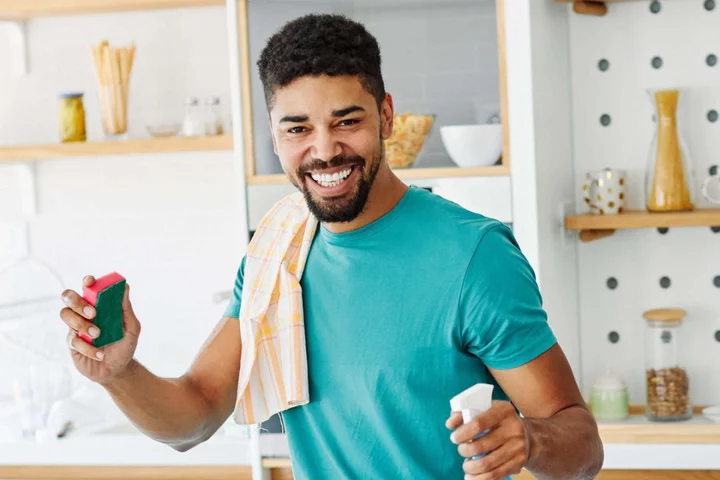
Experts reveal the most unhygienic things in your kitchen – and how to get them clean
It’s likely there are countless things in your kitchen which look clean, but actually, they’re filthy. Could your dishcloths be making you sick? When was the last time you washed your tea towels? And do we really need to bleach the sink more than once a month? We asked an expert to find out. Knobs, door handles, and buttons The buttons and dials on your kitchen appliances could be a germ-fest. “People often neglect to clean these areas of the kitchen,” says Danielle Mason, a cleaning content creator – or ‘cleanfluencer’ – who creates tutorials and videos on TikTok and Instagram. “Most of the time, they don’t think it is important, but as you’re commonly handling raw meat and food, it’s extremely important to keep these areas clean, due to cross-contamination. “Always sanitise with a cloth – I like to do this with Zoflora, as it leaves a great smell afterwards, and kills bacteria from dirty fingers.” Cloths If what you clean with isn’t clean, chances are, your kitchen isn’t either. “I always leave my cloth to soak in bleach before going to bed every night,” says Mason. “This enables a new start in the morning with no bacteria. Also, make sure you’re replacing the cloths – I would suggest a new one every two weeks, whilst still bleaching every night. And make sure you’re not using this cloth on anything other than the kitchen, as you do not want to cross-contaminate.” Sponges Mason stresses sponges are unhygienic, as they’re constantly damp and can carry E. coli. “People tend not to use sponges, as they carry so many more germs, and even putting them in the microwave will not kill all of them. Avoid a sponge where possible.” Dish towels Dish towels and tea towels may not be changed anywhere near often enough. “You should have one for every day of the week, as they carry so many bacteria and germs, which get spread across the kitchen. If you’re drying pots and pans, and then wiping down your surfaces, it’s not good,” she says. Chopping boards Chopping boards – particularly wooden ones – could be a haven for bacteria. “You should have a different colour for different types of food, one for meat, fruit, and other foods,” advises Mason. “The best way to clean them is in a dishwasher, as it’s good to get rid of all the germs due to the very high heat. If you don’t like the dishwasher, then boil the kettle water and leave the chopping boards to soak in it. I use a steam cleaner on mine, as it kills 99.9% bacteria and there are no chemicals.” It is best to avoid wooden chopping boards altogether, as these cleaning methods may damage them. Kitchen sink “This is a massive breeder of bacteria and grime; a distinct microbiome is found in sinks. “The plumbing area found beneath sinks revealed microbial communities dominated by a group of bacteria called Proteobacteria. This phylum includes pathogens such as Salmonella and E. coli, which can cause serious disease,” Mason shares. “I’ve always been taught never to wash my hands in the sink, and to never throw dirty water down the sink. You wash your cups and plates in the sink and prepare food, so it should always be kept clean, and nothing from outside the kitchen should cross-contaminate that. For example, never wash your floors and put dirty water in your kitchen sink, always throw it down the toilet.” How do you possibly clean the inside of your sink and drains? “Baking soda and vinegar is the best way to clean your sink out, or bleach, but you must be careful with bleach, as it can stay in the bottom of your sink, depending on the material it’s made of. I clean my sink out every day.” Pipes and cupboards around your sink could be leading you to have a rodent problem. “You can prevent mice and rodents from entering the kitchen by covering any small crevices or cracks. It is also important to repair leaks as soon as they happen, as they can come through the pipes,” she says. Fridges “Deep clean [your fridge] every two months. A normal cleaning – the wiping of shelves – should be done every other day with soapy water. For any bad smells, use baking soda, which will absorb the smell from the fridge,” Mason continues. “The fridge is a breeding ground for salmonella, E. Coli and other bacteria.” Bins Where you throw your waste away could be a breeding ground for germs. “Make sure you keep [outdoor] rubbish bins away from your house, and make sure you empty your bin as soon as it’s full,” advises Mason. “I personally do not keep a bin in the kitchen, I use a bag and I take that out by the end of the day, but if you are using a bin, make sure you bleach it with hot kettle water, to keep it smelling fresh.” Read More This is why you keep waking up at 4am – and what you can do about it TV chef James Martin reveals cancer diagnosis in apology over ‘bullying’ allegations Bursts of activity that make you huff and puff ‘linked to reduced cancer risk’ Charity boss speaks out over ‘traumatic’ encounter with royal aide Ukraine war’s heaviest fight rages in east - follow live
2023-07-28 17:48
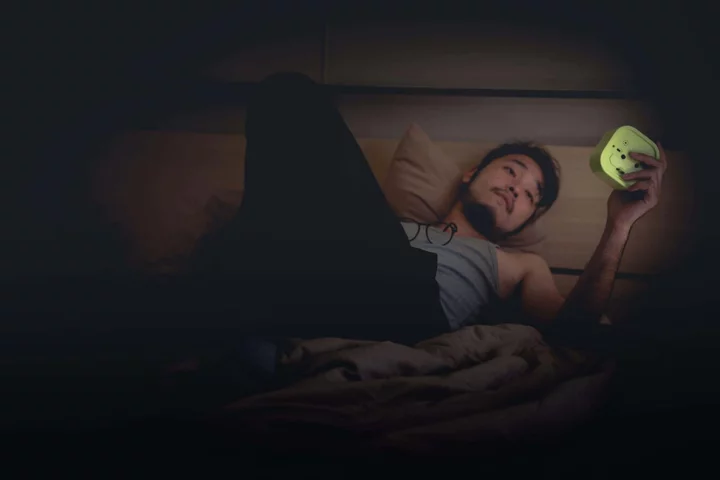
This is why you keep waking up at 4am – and what you can do about it
Ever find yourself awake, staring into space at four in the morning? Is it just a bad habit, or is there something more sinister going on? And why does it always seem to happen at 4am? “We start to experience less deep sleep after around four to five hours,” says Lisa Artis, deputy CEO of The Sleep Charity, who have partnered with Simba mattresses. And once we’re in that lighter sleep faze, we wake much more easily. If you generally fall asleep around 11pm – which is a very common bedtime, 4am wake-ups are more likely. And there are many factors leading to these inconvenient stirrings. Hormones “Sleep is guided by our internal clock or circadian rhythm. One of the most significant and well-known circadian rhythms is the sleep-wake cycle,” Artis continues. “Sleep is regulated by the levels of two hormones: melatonin and cortisol, which follow a regular 24-hour pattern. Melatonin assists you in dozing off, while cortisol helps get you up, and keeps you awake,” she explains. Keeping an eye on your hormones is important in preventing those late-night wake-ups. “Engage in calming activities before bedtime, such as reading, listening to soothing music, or practising relaxation techniques, like deep breathing or meditation,” says Dr Mariyam H. Malik, GP at Pall Mall Medical. Equally, pop your phone down for a bit. “Blue light from electronic devices can suppress melatonin production. Try to avoid screens for at least two hours before bedtime, or use blue light filters. It is best to charge them in a separate room overnight,” Malik adds. Diet Caffeine, heavy meals, alcohol, sugar, and a lack of magnesium or B vitamins could lead you to have a more disturbed night’s sleep, according to Malik. Sugar and carbohydrates may have a particular impact. “A diet high in sugar and refined carbohydrates can cause blood sugar fluctuations, leading to wakefulness during the night,” she says. “It’s unlikely you’ll feel hungry in the middle of the night if your blood sugar dips,” notes Artis, “but to reduce ungodly hour awakenings, trial alternatives for your last meal or snack of the evening. Instead of carb or sweet-based snacks, opt for protein-packed and magnesium-rich foods, like hard boiled eggs, cottage cheese, pumpkin seeds, spinach, dark chocolate, cashews, chicken thighs or turkey.” Protein can take the edge off your night-time hunger, she says, while magnesium is known to support sleep. Needing a wee Do you wake up needing to wee at the same time every night? “Try not to drink excessive amounts of fluids before bedtime,” advises Malik. “It’s important to stay hydrated, but try not to drink anything for around two hours before your usual bedtime. Go to the toilet before you go to bed to empty your bladder. ” Age and life stage “Sleep tends to become more disrupted as people get older,” Malik explains. “Sleep patterns change with age, and various factors can contribute to sleep disturbances in older adults. Some common reasons for sleep disruption in the elderly include changes in your circadian rhythm, decreased melatonin production, medical conditions or medications, and potential sleep disorders.” It can also affect women during the perimenopause. “The reproductive hormones – oestrogen and progesterone – are entwined with the sleep and relaxation hormones, melatonin and serotonin,” says Artis. “When oestrogen begins to fall before and during menopause, it can create a disturbance in the sleep-promoting hormone melatonin, meaning it can’t properly balance out cortisol. When this happens, the ability to fall and stay asleep is affected.” Recurring hot flushes, night sweats, dry skin, and low libido can signal waning oestrogen. Artis advises incorporating foods with high levels of phytoestrogens into your diet throughout the day to help with this. “Phytoestrogens imitate the natural estrogens found in your body. As a consequence, they can bind to your body’s oestrogen receptors and produce similar effects.” Try lentils, kidney beans, chickpeas, tofu, edamame, spinach, cauliflower and broccoli. Worrying Stress is not good for sleep. One study by Bupa even found that 32 million Brits wake up worrying about their health at precisely 4:05 am. The report, which surveyed 4,000 British adults, revealed that more than three-fifths of us wake up in the middle of the night. If you are finding yourself awake at all hours worrying, or waking up with stressful dreams, there are a few things that may help. “Keep a journal by your bedside and write down your worries before going to bed. This practice can help get your concerns out of your mind and onto paper, making it easier to let go of them temporarily,” says Malik. You may also want to “engage in mindfulness or meditation exercises before bedtime. Mindfulness can help you focus on the present moment, reducing anxiety about the past or the future.”
2023-07-28 15:55

Wildfires in Portugal: Is it safe to travel to Lisbon and Cascais right now?
As wildfires rage across Sicily and Greece, Portugal is the latest Mediterranean country to be hit. A fire broke out on 26 July near the popular coastal holiday spot of Cascais, just 30km west of capital city Lisbon. The blaze started at 5pm in part of the Sintra-Cascais natural park, with strong winds fanning the flames and quickening the spread. Local residents chipped in to help the hundreds of Portuguese firefighters sent to tackle the fires, with some attempting to protect their homes and villages with buckets of water and hosepipes. “The fear now is that it will get to the houses,” local resident Ines Figueiredo told Reuters. “We try to help as much as we can with buckets (of water) ... but it’s not worth much.” Planes were also dispatched to waterbomb the blaze before night fell, alongside more than 600 firefighters. Winds of of up to 60km/h were the biggest obstacle to putting out the fire, according to the mayor of Cascais, Carlos Carreiras. A number of local residents have been evacuated as a precaution. If you’re booked to travel to Portugal, is it still safe to go? And what are your rights if you cancel a holiday? Here’s what we know. Where is affected by the wildfires? So far, the fire is contained to Sintra-Cascais natural park; it hasn’t spread as far as the resort of Cascais, popular with holidaymakers for its beaches and vibrant marina. Some villages within the vicinity of the park have been affected, with nine firefighters and four civilians so far treated for minor injuries and some residents evacuated. Elsewhere, smaller blazes have been reported in the north and centre of Portugal, one of which is near the second city of Porto. The highest level of alert for rural fire danger has been issued for several regions, including holidaymakers’ favourite, Faro in the Algarve. Is it safe to travel to Portugal? So far, the one major blaze has yet to impact on any areas that tourists are likely to visit. Unlike the Greek island of Rhodes, where a number of holidaymakers have had to be evacuated from the worst-affected areas, Portugal’s wildfires won’t affect the overwhelming majority of visitors. The UK Foreign Office (FCDO) advice on Portugal has not been updated to reflect the latest fires; its standard advice reads: “Forest fires can occur anywhere in Portugal. Risk of fires is higher when the weather is hot and dry. Fires have become more common due to drought and high temperatures. “Forest fires are highly dangerous and unpredictable. The Portuguese authorities may evacuate areas and close roads for safety reasons. You should: familiarise yourself with local safety and emergency procedures follow the advice of the Portuguese authorities call the emergency services on 112 if you see a wildfire “Starting a forest fire, even if it is by accident, is illegal in Portugal.” No holidays to Portugal appear to have been cancelled by travel companies at this time. Can I cancel my holiday to Portugal? Cancelling a holiday to Portugal based on the currently very small risk of fire impacting the trip would very likely lead to you losing any money paid so far. While most tour operators are offering customers due to travel to fire-affected parts of Rhodes the option of cancelling and rebooking, the same is not true of Portugal, where the blaze is yet to affect tourist areas. If you’ve booked travel and accommodation separately, rebooking flights in many cases costs as much as buying a whole new ticket. Cancellation costs incurred also won’t be covered by your travel insurance in the vast majority of cases, as the FCDO has not issued an advisory against all “non-essential” travel to Portugal. Read More More than two million expected to head overseas for summer getaway despite heatwave 8 best cities and towns in Portugal to visit on your next holiday Best beaches and seaside holidays in Europe 2023 ‘I cannot hold the pee’: Woman caught urinating on plane cabin floor How to spot a hidden camera in your Airbnb Tourists flying into Greece inferno reveal why they refuse to cancel holiday
2023-07-27 17:53
